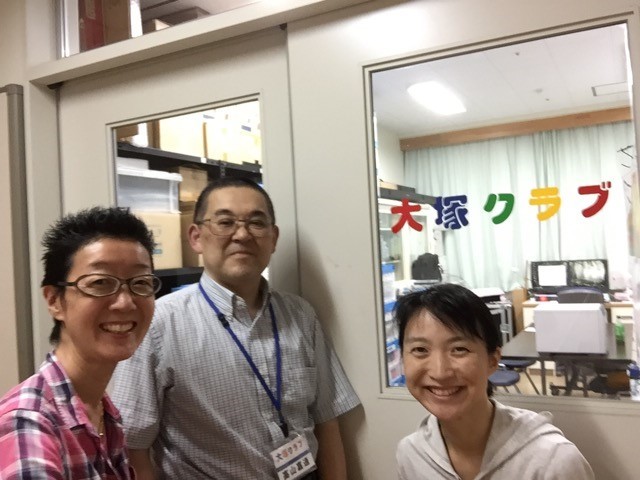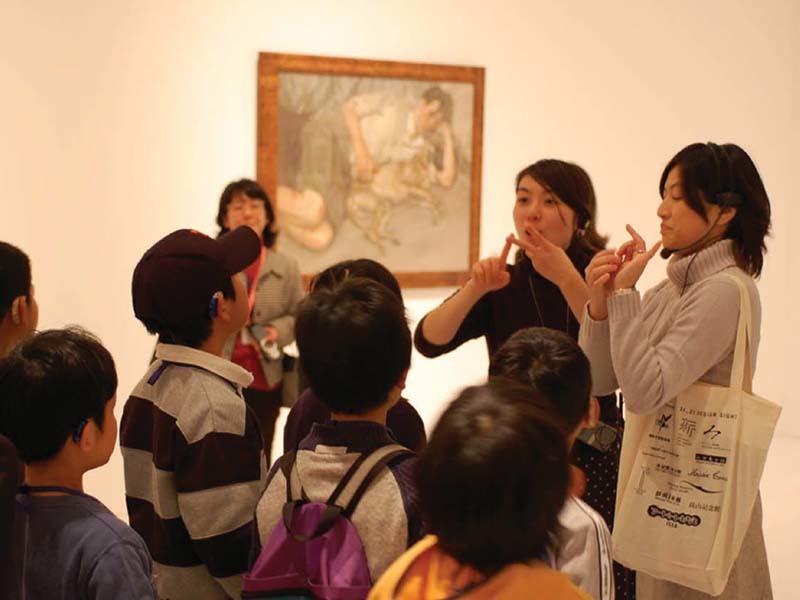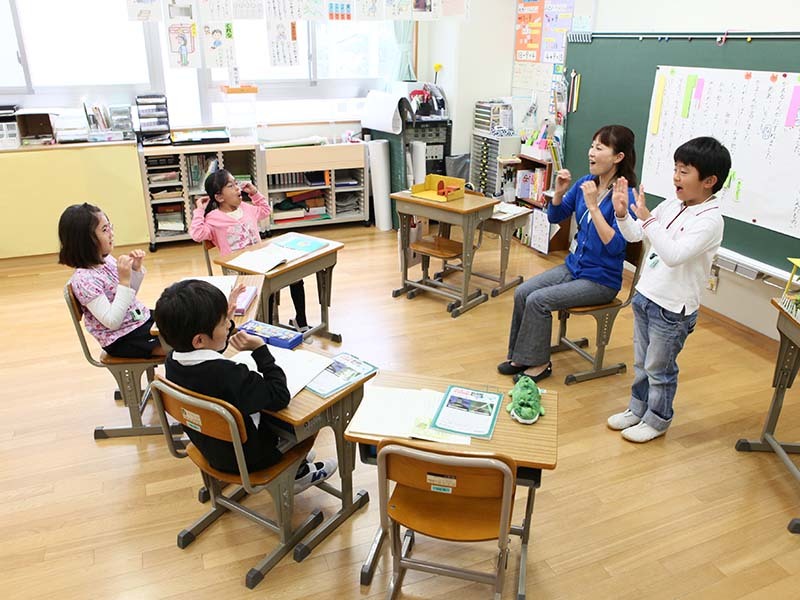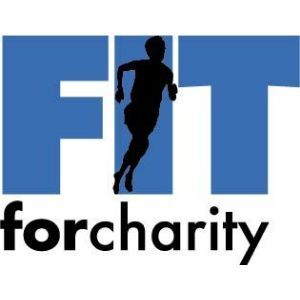Charity Interview Series - Part 6 – NPO Otsuka Club
NPO Otsuka Club Education Support for Hearing Disabilities (“Otsuka Club”) supports extracurricular activities for children with hearing disabilities and supports their families with the objective of improving the social development and independence of the children. FIT has spoken with Mr. Yoshiyuki Takayama, Executive Director of Otsuka Club.

(From the left) FIT2016 Comms member Michiko Shima, NPO Otsuka Club Representative Director Yoshimichi Takayama, and FIT2015 Co-Chair Rumi Matsukata
FIT: Could you share the background to setting up Otsuka Club?
Takayama: It all started when we took our one year old daughter with hearing disability from hospital to hospital and finally arrived at the Otsuka School for the Deaf. As a self-employed I was relatively more flexible than an employed person, so I regularly hung out the school before becoming the PTA president. Back then, it was said that the academic ability of students with hearing disabilities was two to three years behind that of normal schools. With the improved performance of hearing aids as well as increasing diversity of academic options, many parents chose options other than schools for the deaf, resulting in severe drops in students at those schools. As a matter of fact, my daughter was the only student in her class. I wanted to do something for the children and started the Otsuka Club.
There are three types of supporters: 1) Teachers or students with a background in and aiming to teach at schools for the deaf; 2) Local volunteers who support daily activities; and 3) Parent of children with hearing disabilities like me.
FIT: How did you actually start?
Takayama: We discussed how to help children catch up with their studies. To begin with, there were few teachers trained in teaching students with hearing disabilities. Today, it is standard to use sign language; back then, they made them speak, even though they couldn’t hear.
Training the voice is also important, but it is useless unless general communication skills improve. So we started to introduce sign language. We also asked adults with hearing disabilities to join as role models and spent time and play with the children. This helped the children to visualize their own future and it also helped improve communication skills. This is how we started; we also stimulated their intellectual curiosity as the basis for words.

FIT: Can you share a little bit about yourself back then?
Takayama: I was working for an event planning company as a tour manager. Six months a year, I would be on the road throughout Japan, the other six months I had off. I quit the job when we incorporated Otsuka Club as the job wouldn’t allow me to do any work for the club. We rented an apartment cum office near the school and from there on the entire family got fully involved in Otsuka Club. Our daughter has an older brother who joined us on the Hokkaido Camps and other events and took care of photography. He’s now better at sign language then I.
FIT: What’s behind the naming of Otsuka Club?
Takayama: The predecessor organization to Otsuka Club was the Otsuka School for the Deaf PTA, hence the naming. Otsuka is famous among people with hearing disabilities. When we felt the limits of what could be done as PTA, realizing that we had to incorporate in order to maximize subsidies, we decided to establish a NPO. As there were a number of people from the Otsuka area, including myself, we decided to stick to Otsuka as the organization’s name.
FIT: Since the setup in 2005, what has changed most?
Takayama: The biggest change was the incorporation. The trigger was the Education Ministry’s announcement in 2004 to launch a “township children education initiative”, providing funding over three years for afterschool and weekend programs for children. What started as an initiative with an annual budget of JPY 150k supported by 48 PTA volunteers, in 2005 we were able to obtain subsidies of JPY 3.8m and JPY 5.1m in the following year. These two years also saw an expansion of connections, teachers, equipment as well as online settlement of membership fees. We could also add program offerings and conduct research with those funds. Thanks to those grants, the mindset of parents and teachers changed and the number of students increased from 48 to 170.
FIT: Can you tell us about the employment situation for people with hearing disabilities?
Takayama: The employment market for people with disabilities is much better than many think. In part, this boom is due to the Equal Employment Opportunity Law; however, the sad fact is that the attrition rate is a very high 50%. The work can be done via email and written communication; however, many face problems when it comes to daily casual communications with colleagues. If one doesn’t care about the type of work, people with hearing disabilities have plenty of choices. However it’s tough if one has a particular dream, like my daughter has.
FIT: Tell us what is most challenging about running the NPO. Also, what keeps you going?
Takayama: As Executive Director, I take care of many things such as coordinating the organization, preparation of events and looking after funding. I feel really elated when an application for grants gets through. However, with experience, I also learnt that what we want to appeal to is not necessarily equal to what the grant evaluating body expects from us. It taught me about how to best appeal to society.
I cannot recall any serious challenges. The current core team consists of seven: two former school principals, two university professors, two parents and me. The former principals work on the current teachers and influence the children; the professors mobilize university students and provide expert advice; the parents work with the children’s mothers; as mentioned, I take care of organizational matters and funding. Each of us is active in our respective area of specialty.
FIT: We imagine that the school principal has a lot of say in the school?
Takayama: When a new principal comes, sometimes the overall direction changes. The Otsuka Club provides support so that personnel changes don’t affect continuity. The decision by the school principal at the time of our organization’s launch to introduce sign language was a truly innovative step. The current incumbent is the third principal and when he started, sign language, support by the entire community and Otsuka Club already existed. Through our activities, more students join, which leads to more teachers hired. Today we are able to offer individual tutoring and progress based tutoring.

FIT: Last but not least, would you have a message to those participating in the FIT Charity Run?
Takayama: Thanks to the FIT grants, we were able to invest in areas which had been out of reach so far. The mission of Otsuka Club hasn’t changed since the beginning. I wish to express my sincere appreciation for all the support.

